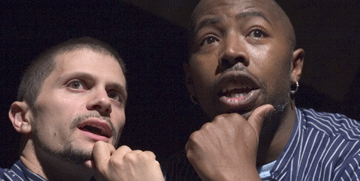
Is Dan Wolf an angry black white boy? Or does he just play one on stage.
The answer to both questions is somewhat complicated.
Wolf (pictured above, left, with Tommy Shepherd) is an extraordinary actor, playwright, MC and rapper behind the live hip-hop group Felonious. He’s the father of a newborn, and he spends his days as program manager of The Hub, a group at the Jewish Community Center of San Francisco that helps young people in their 20s and 30s connect with their Jewish identity through the arts, new ritual, social action and social networking.
In one of those life-altering moments, Wolf heard San Francisco author Adam Mansbach on the radio talking about his 2005 novel Angry Black White Boy or The Miscegenation of Macon Detornay.
“It was just the right moment for me because I had all these questions about the future of Felonious and what it meant for a white kid from the suburbs teaching hip-hop to white kids,” Wolf says. “I ran out and bought the book, and it just cracked open all these questions in my mind, and passages just jumped off the page.”
Being a man of the theater, Wolf immediately began thinking about adapting the book in some way, but he quickly learned the book had already been optioned as a movie. In his work with the Jewish Community Center, Wolf actually crossed paths with Mansbach, the two talked about some sort of stage adaptation, and Wolf was off and running.
Through his association with Intersection for the Arts’ Hybrid Project and its resident theater company, Campo Santo, Wolf set to work and premiered a 15-minute version of Angry Black White Boy last year as part of the Grounded Festival of New Works.
Campo Santo co-founder Sean San José and the Intersection team liked what they saw and began developing a full-length show with Wolf as the title character working with fellow Felonious members Tommy Shepherd, an actor and soundscape musician, and actor and choreographer Keith Pinto.
Part theatrical storytelling, part poetry, rap, beatboxing, ballet and hip-hop dance, Angry Black White Boy previews this weekend and opens Monday, Oct. 27 at Intersection and continues through Nov. 16.
Directing the piece is San José, who is used to long developmental periods with a new show. Sitting around an Intersection conference table with Wolf and Shepherd, San José says this show demanded a faster and more experimental creation.
“We’ve always wanted to do something like this – a sound and movement piece where sound lives as text and dialogue and music and movement is text and storytelling,” San José says. “It’s sonic and movement and text all feeding into one another. The process has been really fun for all of us. The notion of adaptation has been less of a task.”
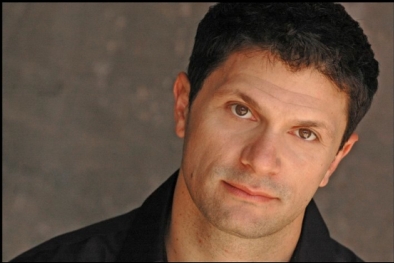 Wolf calls the process a “remix”: “We take words, story, movement and sound and use them the way you might take a sample from a song and bring in disparate instruments. You make something new out of something old – and what’s more hip-hop than that?”
Wolf calls the process a “remix”: “We take words, story, movement and sound and use them the way you might take a sample from a song and bring in disparate instruments. You make something new out of something old – and what’s more hip-hop than that?”
Mansbach’s novel tackles issues of race in America through the character of Macon, a white boy obsessed with black culture to the point that he becomes a sort of vigilante celebrity and founder of The Race Traitor Project, which leads to a national Day of Apology and to an epic New York City riot.
“I can’t even imagine the book as a movie because the story is so sharp and complex,” San José says. “But it works as a play. It’s so nuts what we can do with it, how we can tell this story not just through text and sound but also dance. The talent of this team is so extraordinary they can tell a story without words and still keep the story moving forward. Sometimes, between the sound and the movement, which is leading which.”
Shepherd chimes in: “In Felonious we always say follow the follower.”
The book’s sharp, satirical tone initially put off both San José and Shepherd – both say they’re not sure they would have picked up the book, let alone finished it, had Wolf not been so insistent about the project.
But San José and Shepherd eventually fell into Mansbach’s narrative and his exploration of race in the U.S.
“Race is one of the three issues I think I’ll always be addressing in my work,” San José says. “Mansbach is basically saying we live in a racist society, and then we as artists have to decide how we fulfill that. There’s a lot of nastiness to present in the complexity, but Mansbach has done all the thinking for us, and that helps us not over-think it.”
Wolf says the process of bringing Angry Black White Boy to the stage has been all about pushing himself further than he ever has artistically and surprising himself.
“This is something I’ve wanted to do for a long time – work on a story and a character,” Wolf says. “I’ve had this strange desire for something more classically structured that allows me to use specific skills and create shades in a bigger picture. I’m hoping what we’re doing is more universal, less marginalized artistically. That’s the beauty of working at Intersection and working with these people. We’re allowed to dig deep into the thing and ask the tough questions. As we push ourselves to the next level, we try to do it as fully and completely as possible, and I’m blessed to work in this building with these people.”
Angry Black White Boy continues through Nov. 16 at Intersection for the Arts, 446 Valencia St., San Francisco. Tickets are $15-$25 on a sliding scale. Call 415-626-3311 or visit www.theintersection.org.

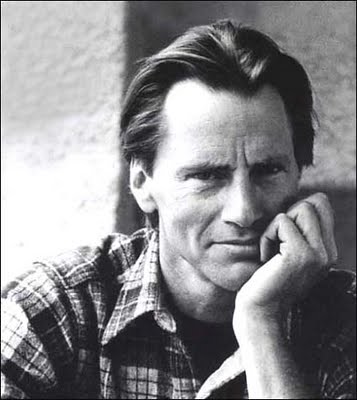
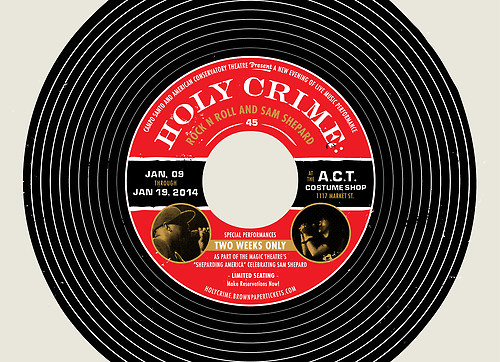

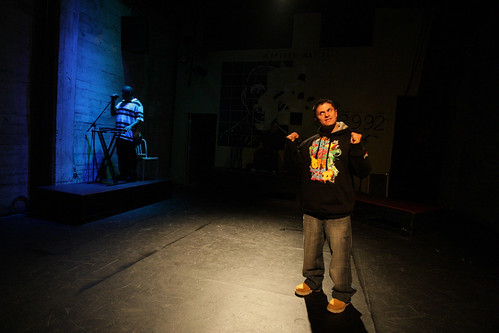 Like so many rise to fame stories, once the protagonist hits the peak of celebrity, things get less interesting. Aside from some excellent re-creations of talk show appearances, Macon’s story sort of implodes rather than explodes.
Like so many rise to fame stories, once the protagonist hits the peak of celebrity, things get less interesting. Aside from some excellent re-creations of talk show appearances, Macon’s story sort of implodes rather than explodes.

 Wolf calls the process a “remix”: “We take words, story, movement and sound and use them the way you might take a sample from a song and bring in disparate instruments. You make something new out of something old – and what’s more hip-hop than that?”
Wolf calls the process a “remix”: “We take words, story, movement and sound and use them the way you might take a sample from a song and bring in disparate instruments. You make something new out of something old – and what’s more hip-hop than that?”